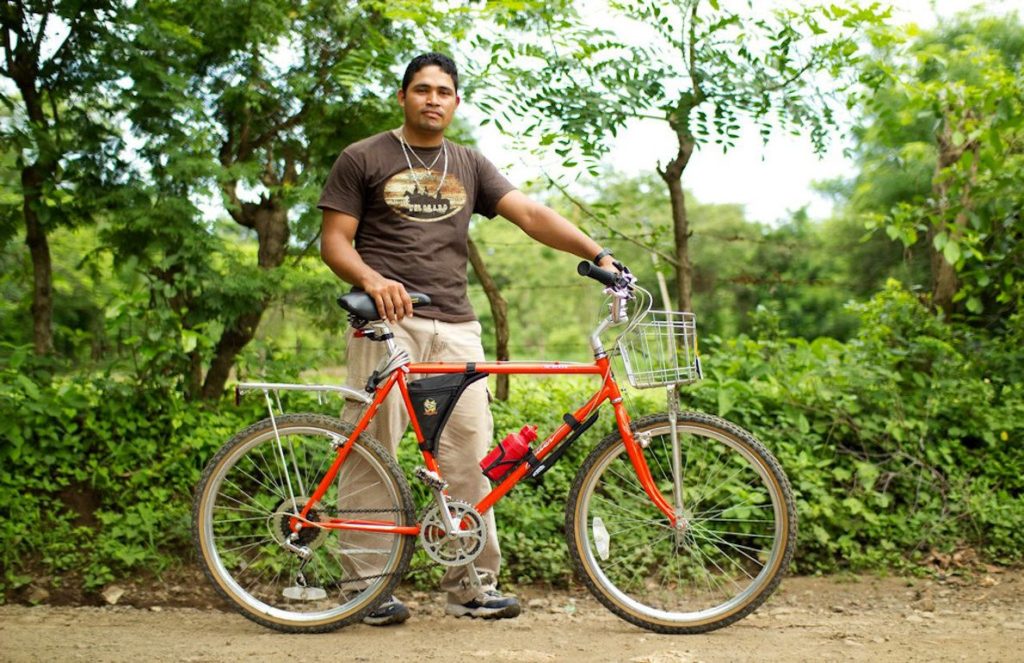David Schweidenback (Ecuador) Pedals for Progress

Pedals for Progres
by Zachary Sherry
Borgen Magazine
August 5, 2021
David Schweidenback (Ecuador 1978-80) founded Pedals for Progress after his time in the Peace Corps. It is now one of the largest distributors of used bikes to developing nations. Since 1991, Pedals for Progress (P4P) has operated as a non-profit organization in New Jersey. It started when Mr. Schweidenback noticed an abundance of bikes thrown into garbage in his neighborhood during a bleak financial time while working as a carpenter. Connecting his experience overseas with what Americans were wasting at home, he chose to make a difference.
Schweidenback spoke with The Borgen Project in an interview. He explained, “I decided if I wasn’t doing anything and I’m not making money and I’m just sitting here bored, I’m going to go out and collect a dozen bikes and I’m going to ship them back to Ecuador. Just like a freebie, a one-off freebie, just to help some people out. And that was the beginning of it.” That dozen eventually exceeded more than 150,000. Mr. Schweidenback’s work has earned him awards from Rolex and Forbes. He was even named a 2008 CNN Hero.
How Pedals for Progress Works
P4P operates both internationally and domestically. On the international side, the company teams up with partners based in those countries rather than opening up bike shops around the globe. These international partners provide the shops which serve to also create jobs in the community while selling bicycles at a fraction of the cost they would be in the United States.
Pedals for Progress innovates a new system to keep these shops self-sustaining called a “revolving fund.” First, P4P foots the bill for the first shipment of bicycles. This leads to the domestic side of the operation. Working with organizations like Rotary Club and various churches, collections are held at a minimum of $10 per bike donation. Other methods to raise money include fundraisers, grants and donations from rich individuals or corporations. With these monetary donations and selling within the impoverished communities at low prices, overseas partners can continue to function for years without extra assistance.
What Difference a Bike Can Make
Studies show that the simple introduction of a bicycle can have a lasting impact on the economies and well-being of people in developing countries. Three organizations ran a series of studies on quantitative experiments in multiple nations in 2009. The purpose was to see if offering bikes to people for transportation as an alternative to walking would financially improve their lives.
The Institute for Transportation and Development Policy study in Uganda found that all households given bicycles improved cultivation and agriculture. Diversity of time increased, showing that at least have of Ugandans were more able to perform non-agricultural duties. In addition, the study indicated more trips to the markets and medical centers of their respective regions. Overall, bicycles resulted in a 35% increase in income over the course of the experiment. The other two organizations, Tanzania’s International Labor Office and World Bicycle Relief in Sri Lanka, yielded similar results to varying degrees.
What About Sewing Machines?
In 1999, Mr. Schweidenback included sewing machines in his list of items to ship. His reasoning: while riding a bicycle can take one to a job, a sewing machine is a job. However, Pedals for Progress was unable to ship more than 200 per year for a long time. It wasn’t until 2015 when he adopted a new brand, Sewing Peace, that the organization began shipping more than 500 each year.
Sending out sewing machines as an alternative to bicycles can reap a few benefits that could not come anywhere else. For one, shipping them costs much less and puts less of a burden on overseas partners that do not have the ability to handle a full container of 500 bikes.
Not Discouraged
Ironically enough, Mr. Schweidenback’s first mission to help Ecuador’s bike shortage never came to fruition in the way he hoped. Before Pedals for Progress was what it is today, he held a meeting with the Ecuadorian Consulate to donate bicycles to those who need them.
Mr. Schweidenback explained, “I said I want to get a dozen bikes and I want to ship them down to Ecuador. I need to help get them through customs because I want to ship them out to Sucua, out to the Amazon where people don’t have transportation and really help some people. And I told him my whole history, my whole program and all my desires. And he stopped for a second and he went, ‘Yeah, no. There’s no way I want to help you with this. It’s never going to work. They’re not going to let you send them in. No, you can’t do it.’ I was so dejected that I had to go home, tell my wife that, hey, they won’t let me in! And at that point, I had 140 bikes in my backyard.”
Despite this early setback, his passion for giving the less fortunate a leg up drove him to help more than 30 countries around the world. Pedals for Progress has provided much-needed transportation to those who would otherwise not be able to afford it.
No puns intended but David has taken the road less traveled, and he has gone the extra mile. Thank you, Zachary, for reminding us of the role of intention, will power , and ingenuity.
Patricia Silke Edmisten Peru, 1962-64
David—my hat is off to you. Thanks for caring and making a difference in people’s lives.
Thank you, David! You are such an inspiration – that one person with a vision and determination can make such an
exponential positive impact – not only with the individuals whose lives you change but with all of us who could be following through with our own vision to make this world a better place. Onward…….